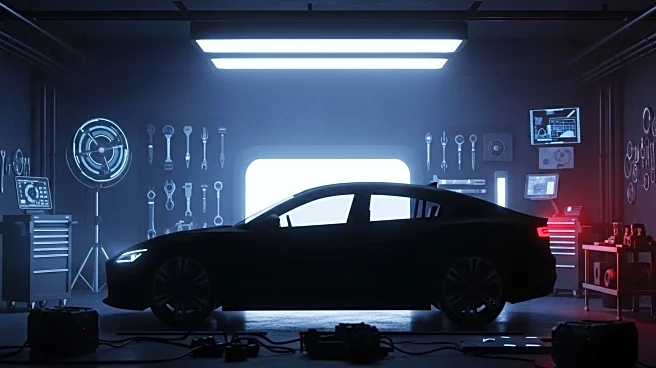What's Happening?
Fisker Ocean owners have organized into the Fisker Owners Association (FOA) following the company's bankruptcy in June 2024. The collapse left early adopters with vehicles plagued by various issues, including battery failures and software glitches, without support for repairs. The FOA, a nonprofit organization, aims to provide solutions for these problems by launching third-party apps and building a global parts supply chain. The association has attracted 4,055 members, who pay annual dues to support its initiatives. The FOA has also spawned three separate companies to handle parts and software solutions, including Tsunami Automotive, Tidal Wave, and UnderCurrent Automotive.
Why It's Important?
The formation of the FOA highlights the challenges faced by consumers when a company fails to support its products post-collapse. This grassroots effort is significant as it represents a unique approach to maintaining and upgrading a modern EV fleet without manufacturer support. The association's success could set a precedent for other owner groups facing similar situations. It also underscores the importance of reliable customer support and product sustainability in the automotive industry, particularly as EV adoption grows. The FOA's efforts may influence how future bankruptcies are handled and how owners can organize to protect their investments.
What's Next?
The FOA faces several challenges, including declining resale values and safety concerns related to the vehicles. Despite these obstacles, the association remains optimistic about its ability to keep the Fisker Ocean vehicles operational. The success of this initiative will depend on the continued collaboration among owners and the effectiveness of the solutions provided by the FOA's associated companies. The association's future actions may include further software updates and hardware improvements, as well as potential partnerships with other organizations to enhance vehicle functionality.
Beyond the Headlines
The FOA's efforts raise questions about the ethical responsibilities of manufacturers to their customers, especially in the event of bankruptcy. The situation also highlights the potential for community-driven solutions in the tech and automotive sectors, where owners can take control of their products' futures. This development may lead to increased scrutiny of startup business models and the sustainability of their operations, particularly in the competitive EV market.










